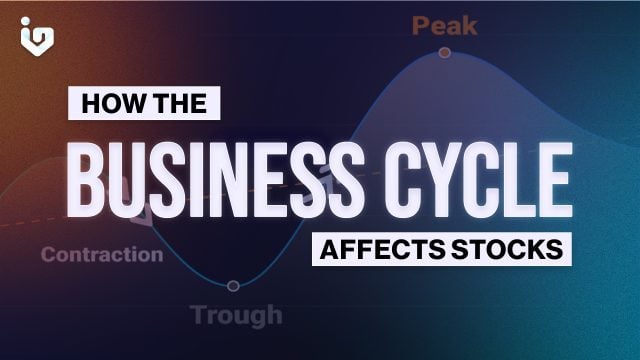The business cycle is the periodic fluctuation of economic activity that occurs over time. It consists of four phases: expansion, peak, Recession, and trough. Each phase has different implications for the performance of different sectors and industries in the stock market.
Expansion
Expansion is the phase when the economy is growing at a healthy pace, characterized by rising output, income, employment, and consumer spending. During this phase, cyclical stocks tend to outperform the market, as they are sensitive to changes in economic conditions. Cyclical stocks include those from sectors such as consumer discretionary, industrials, materials, and financials. These sectors benefit from increased consumer and business confidence, spending, and borrowing.
Peak
Peak is the phase in the business cycle when the economy reaches its maximum level of output and growth, signaling the end of the expansion phase. During this phase, the economy may experience inflationary pressures, as the demand for goods and services exceeds the supply. The central bank may intervene to raise interest rates to curb inflation and prevent the economy from overheating. This may have a negative impact on the stock market, as higher interest rates increase the cost of borrowing and reduce the profitability of businesses. Defensive stocks tend to outperform the market during this phase, as they are less affected by changes in economic conditions. Defensive stocks include those from sectors such as consumer staples, utilities, health care, and telecommunications. These sectors provide essential goods and services that are in constant demand regardless of the economic situation.
Recession
Recessions occur when the economy is shrinking, characterized by falling output, income, employment, and consumer spending. A recession may be caused by various factors, such as a financial crisis, a trade war, a pandemic, or a natural disaster. During this phase, the stock market may experience a bear market, which is defined as a decline of 20% or more from a recent high. Bear markets are usually accompanied by high volatility, uncertainty, and pessimism. Defensive stocks tend to outperform the market during this phase, as they are less exposed to the economic downturn. Cyclical stocks tend to underperform the market during this phase, as they are more vulnerable to the economic slowdown.
Trough
The trough is the phase when the economy reaches its lowest level of output and growth, signaling the end of the contraction phase. During this phase, the economy may start to recover from the recession, as the central bank may lower interest rates to stimulate the economy and boost consumer and business confidence, spending, and borrowing.
This may have a positive impact on the stock market, as lower interest rates reduce the cost of borrowing and increase the profitability of businesses. The stock market may experience a bull market, which is defined as a rise of 20% or more from a recent low. Bull markets are usually accompanied by low volatility, optimism, and confidence. Cyclical stocks tend to outperform the market during this phase, as they are more responsive to the economic recovery. Defensive stocks tend to underperform the market during this phase, as they are less attractive to investors who seek higher returns.
Taking Advantage of the Business Cycle
While this all may seem hard to look at on a day to day basis, knowing where we are in the business cycle is something every investor should know. By understanding the intricacies of the economy, investors can gauge the general direction of where the market could go in the medium to long term.

